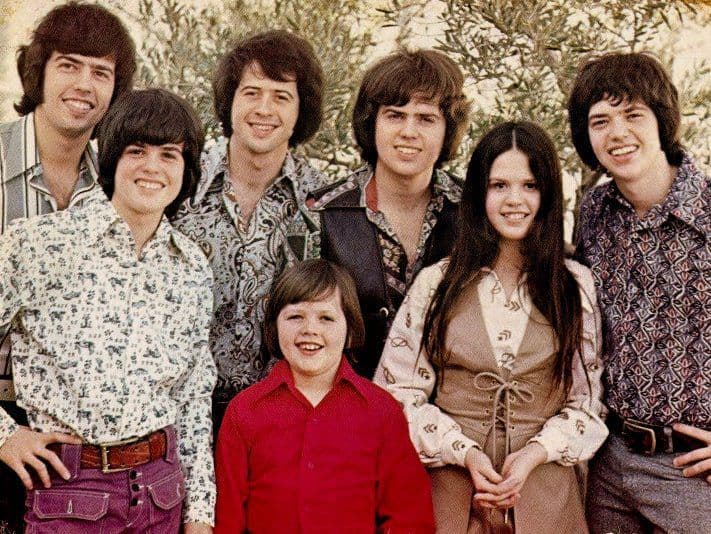
The Osmonds’ “Most Of All”: A Sweet Echo of Enduring Devotion
For those of us who came of age with the pop melodies of the early 1970s, the mention of The Osmonds instantly conjures images of wholesome charm, infectious harmonies, and that unique, energetic spark that set them apart. Among their vibrant discography, a particular gem shines with a gentle, enduring warmth: “Most Of All.” While not one of their powerhouse chart-toppers like “One Bad Apple” or “Crazy Horses,” this heartfelt ballad, released in 1972, found its own special place. “Most Of All” charted on the Billboard Hot 100, reaching a peak of No. 36 in July 1973. It was a testament to the group’s versatility, proving they were more than just a dance-pop phenomenon; they could deliver a sincere, touching sentiment with equal conviction.
The story of The Osmonds is, in itself, a remarkable American saga. Hailing from Ogden, Utah, this large, talented, and deeply religious Mormon family began performing at a very young age, initially as a barbershop quartet. Their journey from local appearances to national television on The Andy Williams Show in the 1960s cemented their wholesome image and paved the way for their pop stardom. By the early 70s, with the addition of younger brother Donny Osmond becoming a prominent frontman, and a shift towards a more contemporary R&B-infused pop sound orchestrated by MGM Records, they exploded onto the music scene, igniting “Osmondmania” across the globe.
“Most Of All” arrived during this whirlwind period of their success, yet it stands out for its earnest simplicity. The song, written by Gale Garnett, is a tender declaration of love and unwavering devotion. It speaks to the feeling of having someone who means more to you than anything else in the world – more than fame, more than fortune, more than all the fleeting joys life can offer. The lyrics, straightforward and sincere, describe finding absolute contentment and purpose in the presence of a beloved. It’s a sentiment that resonates deeply, especially for those who have experienced profound, lasting love. In a time when pop music could often be superficial, “Most Of All” offered a refreshing dose of genuine emotion, a quiet sincerity that set it apart.
Listen closely to Merrill Osmond’s lead vocal on this track. There’s a tenderness in his delivery, a gentle earnestness that perfectly captures the song’s heartfelt message. He doesn’t belt it out; instead, he croons with a soft conviction, allowing the sentiment to truly shine through. The harmonies, a signature of The Osmonds, are, as always, impeccable – rich and smooth, providing a warm, supportive bed for Merrill’s lead. The arrangement is classic early 70s pop-ballad: lush strings, a steady rhythm section, and just enough gentle ornamentation to elevate the melody without overpowering it. It’s the kind of song that makes you want to hold someone close, a timeless expression of affection.
For many of us, “Most Of All” evokes a particular kind of nostalgia. It reminds us of slower, perhaps simpler times. It takes us back to when pop music was often clean-cut and openly romantic, sung by artists who genuinely seemed to believe in the power of innocent love. The Osmonds, with their unwavering family values and squeaky-clean image, were the embodiment of this era. “Most Of All” perfectly encapsulates that era’s romantic idealism, serving as a gentle, melodic echo of devotion. It’s a song that speaks to the heart’s enduring need for connection, for someone who matters “most of all,” and it continues to hold a special place in the memories of those who remember The Osmonds at their harmonious best.